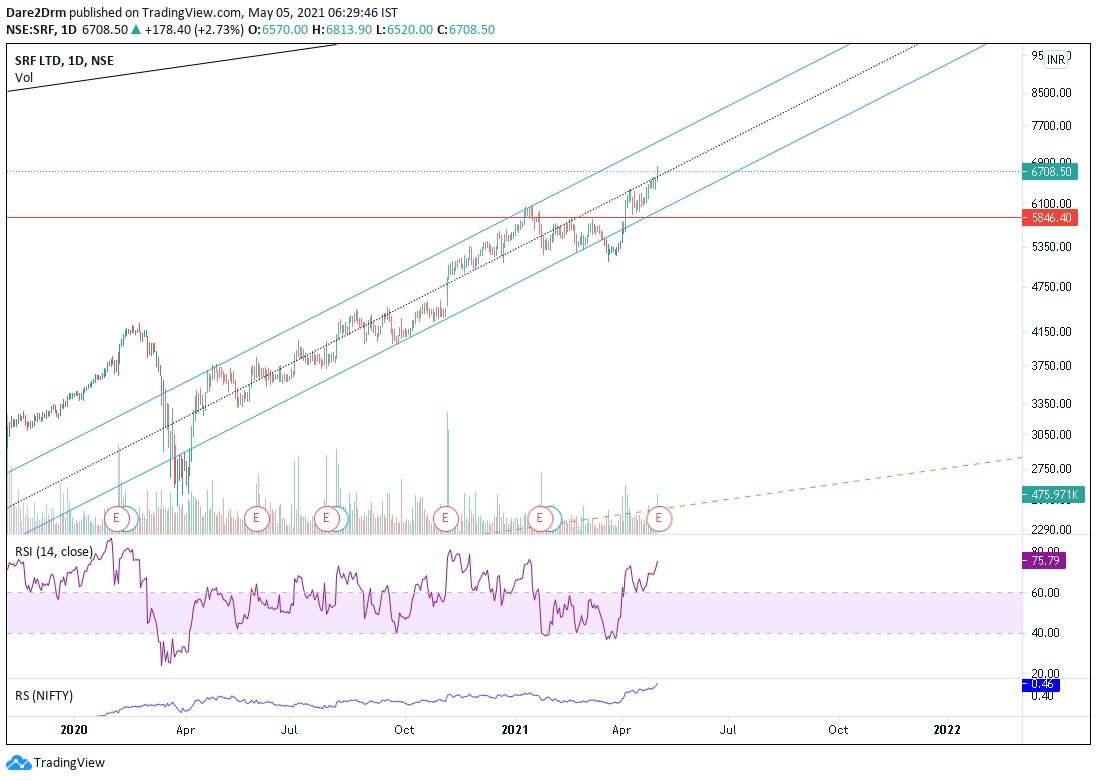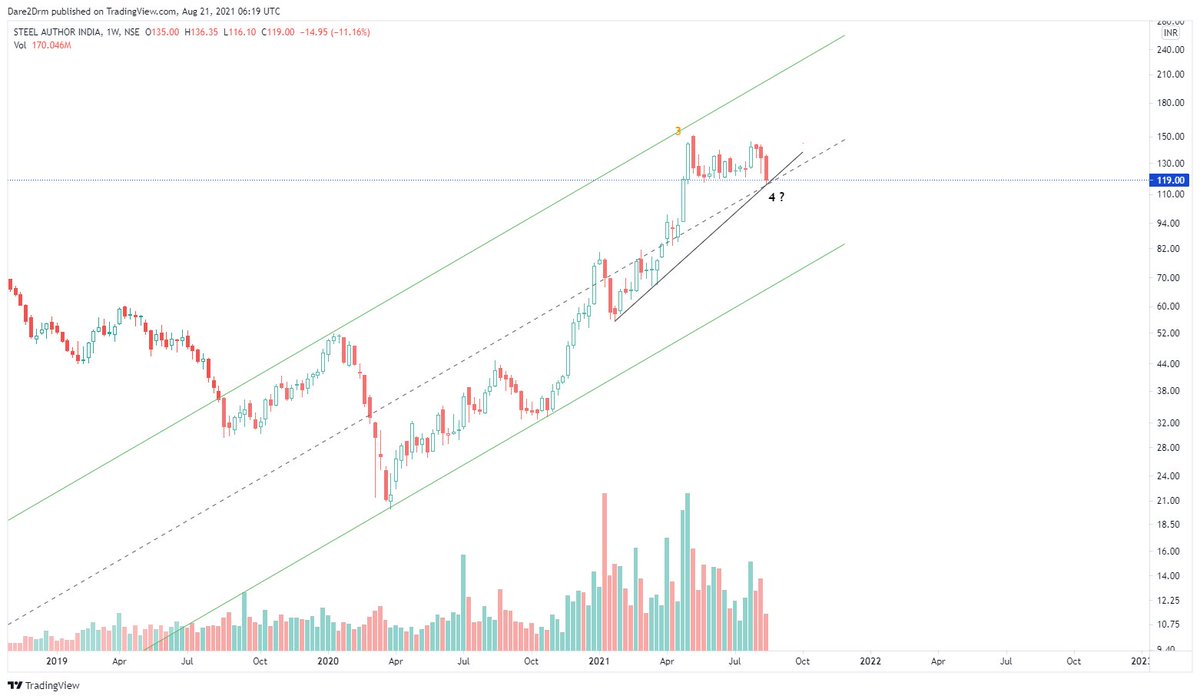#SRF any similarity in chart pattern!? 🧐 Remember, this was my trigger from list of 3 stocks in watchlist.
Today, don't ask me for new watchlist - I will be mostly 'Watching' 😏 https://t.co/0BeDHtB55r

#SAIL Directionally it is headed to 140/150 levels next over short period of time. SL - todays low pic.twitter.com/1IE4eJn9px
— Dare2Dream (@Dare2Dr10109801) April 13, 2021
More from Dare2Dream
More from Sail
#SAIL 88 to 135.7 yesterday in 3 weeks. May pause. My view, this metal cycle has many miles to run. A move above yesterday high could again be a break out. lets see. @caniravkaria
#SAIL Directionally it is headed to 140/150 levels next over short period of time. SL - todays low pic.twitter.com/1IE4eJn9px
— Dare2Dream (@Dare2Dr10109801) April 13, 2021























